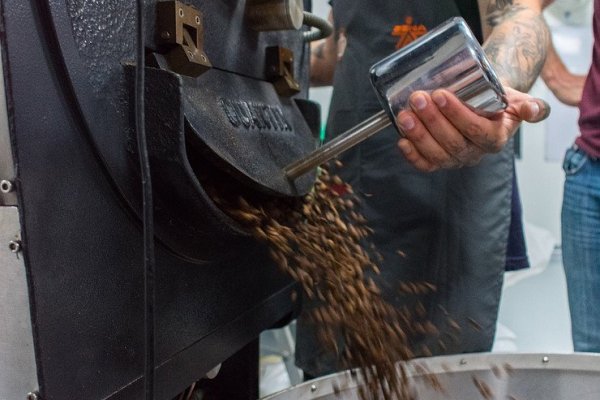COLOMBIAN UNIVERSITY FOR COFFEE
What place better to learn everything about coffee than a university for coffee? During our trip to Colombia, we were amazed by the university and their knowledge. Everything from seeding to fertilizing and eventually making the coffee, are taught by this school. All to continue the rising business of coffee and to create a bright future for their children.

I spoke Eliza Cruz from the coffee school to learn more about our precious and delicious coffee. Eliza works at the coffee school in Colombia as an English teacher, she is involved in the students' whole process and the coffee they grow.
Around the school, open green fields grow several stages of coffee plants.
Why opening a school especially for coffee?
The school teaches its students for free about the coffee production chain since the government pays all costs. They have opened the school not only to educate the students to improve their knowledge and become essential workers in the coffee industry, but it was also because of the fast change in industries in the past 30 years. 50 to 60 years ago, coffee was the leading business in Colombia. But, because of the rise of products like cane sugar, many farmers changed to growing that.
This change of industry is regrettable for the entire cultural, social, and economic heritage. As Eliza sees it, "the country's good name has been due to coffee and its attributes." Therefore, the main reason for opening this school is to level-up the coffee industry in Colombia and get their coffee on the map again. The more educated people, the better the coffee.
What makes Colombian coffee so unique?
Just like any other coffee-producing country, Colombian coffee has its own flavors. But how can the taste of the same product vary so much? Eliza says: "It's all about the chemistry. To start, the environment where the plant grows in is critical. Besides, the way the plant is treated should not be underestimated. Diseases, soil, water, etc. should all be considered." She explains that the perfect scenario is to have a formula that creates the perfect final product. This formula is almost impossible to achieve, but the farmers with one can always sell their beans for the same high price to the federation."
Tasting a coffee bean from Colombia is not just about the flavor of the coffee; it's all about the culture, flavors, and smells of the region, and the farmer's love that defines the taste of the coffee bean.
- By Isabelle van der Horst
